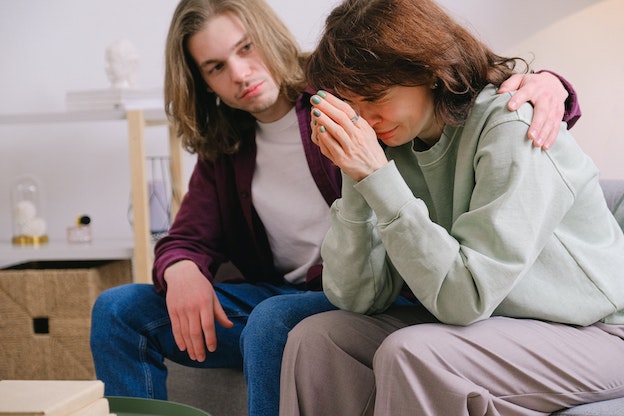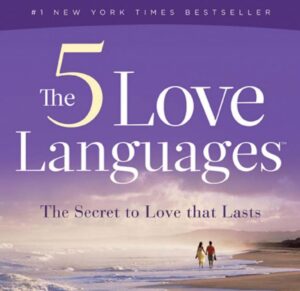Sharing is caring!
Emotionally Focused Therapy (EFT) is an approach to couples therapy that is focused on helping couples understand and regulate their emotions, deepen their emotional connection, and build stronger, more fulfilling relationships. One of the key components of EFT is identifying negative interaction cycles that are causing distress in the relationship, including negative views of self (VOS) and others (VOO), and the underlying emotions and attachment needs.
Negative interaction cycles are patterns of behaviour and emotional responses that can develop in relationships when couples feel disconnected and unable to meet each other’s emotional needs. These cycles can be triggered by a variety of factors, including stress, trauma, and previous relationship experiences. In EFT, these cycles are seen as a way of coping with emotional distress, but can ultimately create further distress and disconnection in the relationship.
Negative VOS and VOO are beliefs about oneself and one’s partner that can develop within these negative interaction cycles. When a person feels emotionally disconnected from their partner, they may begin to develop negative beliefs about themselves, such as feeling unlovable or inadequate. Similarly, they may develop negative beliefs about their partner, such as seeing them as uncaring or unresponsive.
These negative views can fuel the negative interaction cycle, leading to more emotional distress and disconnection. For example, if one partner believes they are unlovable and their partner is uncaring, they may withdraw emotionally, leading the other partner to feel rejected and respond with anger or criticism. This can create a cycle of emotional disconnection, where both partners feel misunderstood and unable to meet each other’s emotional needs.
The underlying emotions and attachment needs that drive negative interaction cycles and negative VOS and VOO include a range of primary emotions, such as fear, anger, and sadness, as well as secondary emotions, such as shame and guilt. These emotions can be overwhelming and difficult to express, leading to a sense of emotional disconnection and further fuelling negative interaction cycles.
Attachment needs, such as the need for safety, security, and closeness, are also important factors in negative interaction cycles. When attachment needs are not met, couples may feel emotionally disconnected and unable to connect with each other. This can lead to negative interaction cycles and negative views of self and others, as couples struggle to cope with emotional distress and meet their attachment needs.
In EFT, therapists work with couples to identify and interrupt negative interaction cycles, as well as to explore and regulate emotions and attachment needs. By developing a deeper understanding of each other’s emotional experiences and attachment needs, couples can create new patterns of interaction that promote emotional security and closeness, and build stronger, more fulfilling relationships.
Testimonials
"Thanks, Aaron, we could feel the benefits of each couple counselling session, even in our first session. We had done lots of work with different psychologists individually and as a couple prior to our first session, but the work with you feels deeper and different, in a good way. Just by helping us to slow down during the session makes us more aware of our primary emotions."

“Aaron is a truly talented psychotherapist and relationship counsellor who cares deeply for his clients. I recommend his services without hesitation. Thanks for taking our marriage from ‘good’ to ‘amazing’ Aaron, we are forever grateful!”

“My husband and I were very fortunate to see you … You (without a doubt in my mind) saved our marriage. Everything is wonderful currently … Eternally grateful. I truly mean every word. Very grateful to you”

"Aaron was very straight forward and honest. Clear about the approach and consistent in helping us change our patterns. The greatest accomplishment through this counselling process is connecting with my partner on an emotional level."

"I couldn't find the words ... Thank you so much for helping us throughout my family problem and obstacles ... not just our marital problems but more particularly to my son ... you're such a truly blessing to him."

"What we gain through the couple counselling process with Alive Counselling was greater insights into family of origins and the sources of [our] emotional pain. Stronger connection to partner."

“Thank you for the difference you’ve made to the life of our family. We are so blessed to have found you.”

"Aaron helped my partner and I reconnect. Not only with each other but within ourselves. Really listening to each other and not just 'doing the angry, dysfunctional dance'. We received lots of practical tips to manage in times of stress."

"Aaron is very patient and level headed ... What we gain through the couple counselling process with Alive Counselling was better awareness of the emotional cycle and triggers with my partner. What was most helpful about the counselling process was slowing the emotional reaction down to get to a calmer position ."

"The greatest accomplishment through this couple counselling process, was developing emotional vulnerability and being celebrated for that. What I like about Aaron is his excellent construction of a safe environment. Very educational process."

“[My partner] and I are doing well. We continue to use your strategies to slow things down ... We have also recommended you to friends of ours.”

“We used to think the ’honeymoon phase’ is just the early experience of a relationship that will end, and did not realise it is possible to feel the same ‘honeymoon’ experience again. Through the counselling process, we are so excited that we can connect deeply like we did early in our relationship.”

“[What I gain from the counselling process with Alive Counselling] It reminded me that there is a reason for everyone’s behaviour and to be more conscious and empathetic of that.”

“[The most helpful part of the counselling process] Insight to where a lot of my characteristics come from and why. Being reminded of what the basic needs of every human is.”

“[What I like about the way my counsellor works] Was able to bring out a lot of things about myself that I hadn’t realised. I did find counselling helpful and I thank Aaron for his time and advice.”

“[The benefits or changes I noticed in myself] Being able to label emotions and address them in the moment and being more mindful of my partners emotions.”








Pingback: Navigating Anger in Relationships: The Roadmap for Couples - Alive Counselling
Pingback: The Cycle of Distress vs The Cycle of Intimacy - Alive Counselling
Pingback: Navigating Love's Waters: Avoiding Relationship Disasters While Dating - Alive Counselling